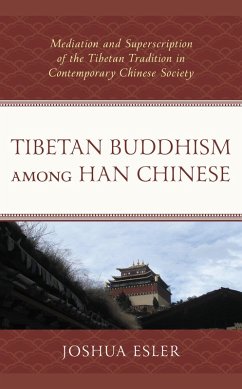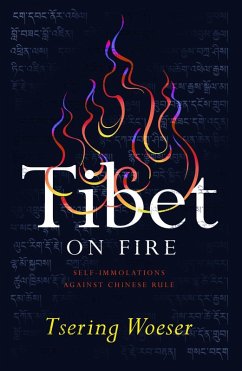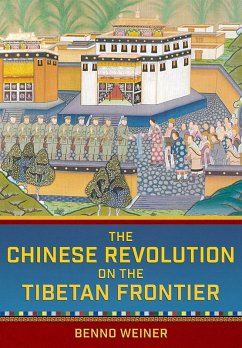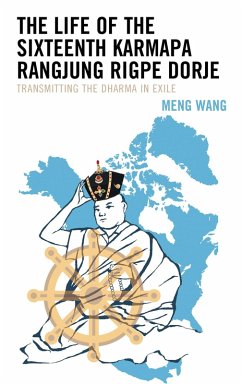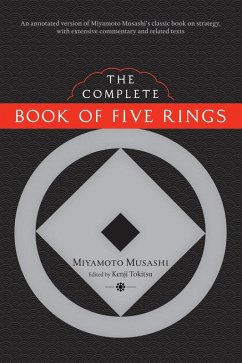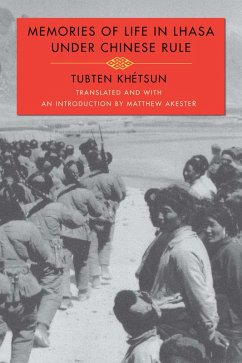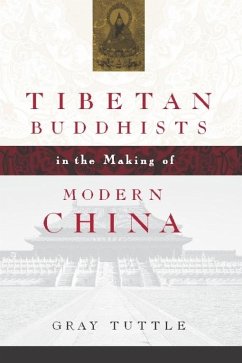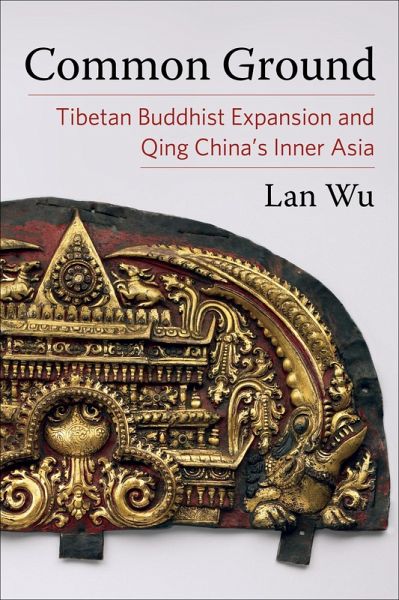
Common Ground (eBook, ePUB)
Tibetan Buddhist Expansion and Qing China's Inner Asia

PAYBACK Punkte
13 °P sammeln!
The Qing empire and the Dalai Lama-led Geluk School of Tibetan Buddhism came into contact in the eighteenth century. Their interconnections would shape regional politics and the geopolitical history of Inner Asia for centuries to come. In Common Ground, Lan Wu analyzes how Tibetan Buddhists and the Qing imperial rulers interacted and negotiated as both sought strategies to expand their influence in eighteenth-century Inner Asia. In so doing, she recasts the Qing empire, seeing it not as a monolithic project of imperial administration but as a series of encounters among different communities.Wu...
The Qing empire and the Dalai Lama-led Geluk School of Tibetan Buddhism came into contact in the eighteenth century. Their interconnections would shape regional politics and the geopolitical history of Inner Asia for centuries to come. In Common Ground, Lan Wu analyzes how Tibetan Buddhists and the Qing imperial rulers interacted and negotiated as both sought strategies to expand their influence in eighteenth-century Inner Asia. In so doing, she recasts the Qing empire, seeing it not as a monolithic project of imperial administration but as a series of encounters among different communities.
Wu examines a series of interconnected sites in the Qing empire where the influence of Tibetan Buddhism played a key role, tracing the movement of objects, flows of peoples, and circulation of ideas in the space between China and Tibet. She identifies a transregional Tibetan Buddhist knowledge network, which provided institutional, pragmatic, and intellectual common ground for both polities. Wu draws out the voices of lesser-known Tibetan Buddhists, whose writings and experiences evince an alternative Buddhist space beyond the state. She highlights interactions between Mongols and Tibetans within the Qing empire, exploring the creation of a Buddhist Inner Asia. Wu argues that Tibetan Buddhism occupied a central-but little understood-role in the Qing vision of empire. Revealing the interdependency of two expanding powers, Common Ground sheds new light on the entangled histories of political, social, and cultural ties between Tibet and China.
Wu examines a series of interconnected sites in the Qing empire where the influence of Tibetan Buddhism played a key role, tracing the movement of objects, flows of peoples, and circulation of ideas in the space between China and Tibet. She identifies a transregional Tibetan Buddhist knowledge network, which provided institutional, pragmatic, and intellectual common ground for both polities. Wu draws out the voices of lesser-known Tibetan Buddhists, whose writings and experiences evince an alternative Buddhist space beyond the state. She highlights interactions between Mongols and Tibetans within the Qing empire, exploring the creation of a Buddhist Inner Asia. Wu argues that Tibetan Buddhism occupied a central-but little understood-role in the Qing vision of empire. Revealing the interdependency of two expanding powers, Common Ground sheds new light on the entangled histories of political, social, and cultural ties between Tibet and China.
Dieser Download kann aus rechtlichen Gründen nur mit Rechnungsadresse in A, D ausgeliefert werden.





